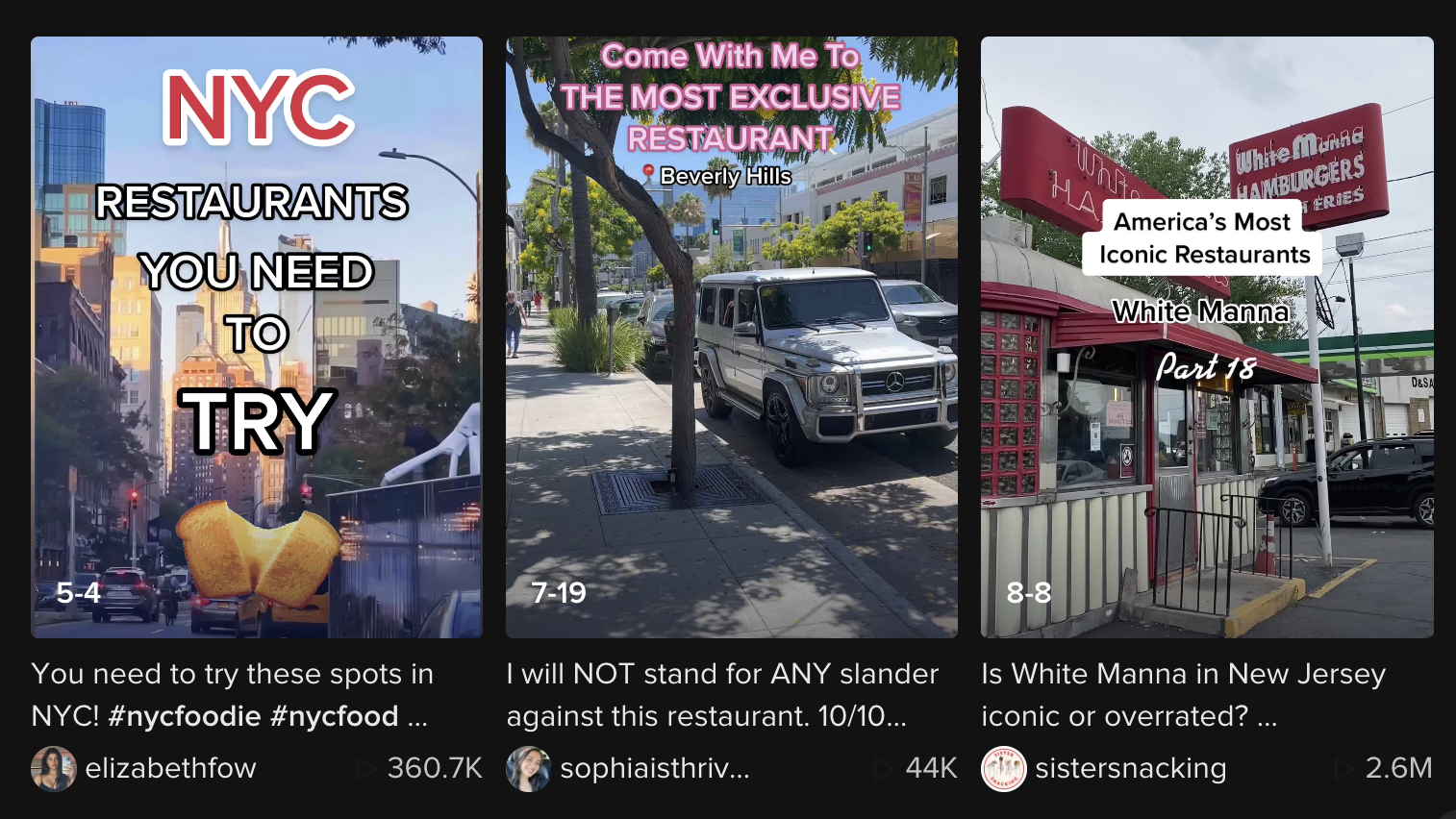TikTok's Influence On Restaurants Is Only Getting Stronger
The social media app is seriously impacting our dining decisions, for better or for worse.
It's easy to associate TikTok exclusively with Gen Z. That generation is tech-savvy, outspoken, and generally tends to dominate the app's biggest trends. But a new survey finds that millennials—yes, even elderly, decrepit millennials—are similarly reliant on the social media app, consulting TikTok to determine which restaurants are worth visiting and using the platform to share scathing reviews and glowing recommendations alike. When it comes to seeking out dining options, TikTok is steadily replacing once dominant platforms like Google and Yelp.
How restaurant goers are using TikTok
According to Restaurant Business, a recent survey from marketing agency MGH found that 53% of millennials ordered from a restaurant after seeing a video about that specific restaurant on TikTok. And the reasoning behind that decision is based almost entirely on how the food appears in the video: 72% of all survey respondents said seeing appetizing-looking food spurred them to place an order at the restaurant.
In some cases (according to 45% of respondents), the interest in the restaurant was because of a unique menu item, while 42% say they tried a restaurant because a TikTok video simply made it look like a fun place to go.
The survey also shows that customers are willing to drastically change their habits based on what they see on TikTok. Around 30% of those surveyed said that they traveled further and paid more than they would normally travel/spend to visit a restaurant that came across their TikTok feed. This extreme influence is causing more restaurants to adopt a TikTok strategy to get customers in the door—some of the most prominent restaurant brands on the social media app include fast food chains like Dunkin', Taco Bell, and McDonald's, but also high-end restaurants like Nobu, Alinea, and Nusr-Et.
"TikTok truly is a restaurant marketer's dream come true," Ryan Goff, EVP, social media marketing director at MGH, tells Restaurant Business. "There aren't many other tools we have left in our marketing toolbox that can drive the sort of impact promised by TikTok through this survey."
The dark side of TikTok restaurant reviews
For restaurants, the exposure offered by TikTok is a double-edged sword. Customers also now have a more accessible, highly visible outlet to completely rip apart restaurants if they see fit, and many users can gain a huge following doing so. The VIP List, for instance, is an account with more than 400,000 followers, and it carries the all-caps tagline "GO CRY ABOUT IT." The Gen-Zers who run the page have made a name for themselves by being really, really mean.
Particularly scathing Yelp reviews no longer pack the same punch as these TikTok videos can, with their immediacy and urgency. And text-based crowd-sourced restaurant criticism has become a less reliable way to determine whether a restaurant is good anyway, thanks to Google review scams and similar grifts that generate one-star reviews as a form of restaurant extortion. But when someone is posting a video straight from the dining room and telling followers not to eat there, users are likely to listen.
According to Bon Appétit, the constant need for engagement on TikTok naturally leads to more hyperbolic analysis of every meal—after all, no one's sticking around for a video saying how "fine" everything tasted. And negative reviews just get more attention in a landscape where the hottest take is the most shared. As Audrey Jongens of The VIP List tells Bon Appétit, "People want the drama, and that's what we're giving."
While this approach may not necessarily affect the bottom line of an already well-established restaurant, it can become a dangerous practice for small businesses with little media exposure besides what people post on TikTok. Considering just how influential the app seems to be on our dining decisions, those with power should consider using their virality for good instead of evil. Regardless, we'd better get used to this new form of restaurant review, because it looks like it's here to stay.
